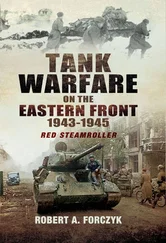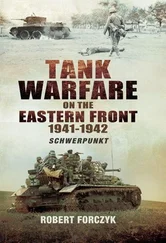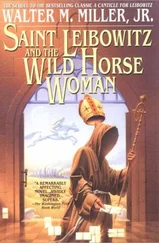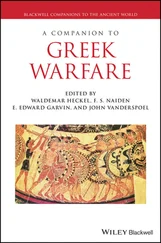Walter Gilbey - Small Horses in Warfare
Здесь есть возможность читать онлайн «Walter Gilbey - Small Horses in Warfare» — ознакомительный отрывок электронной книги совершенно бесплатно, а после прочтения отрывка купить полную версию. В некоторых случаях можно слушать аудио, скачать через торрент в формате fb2 и присутствует краткое содержание. Жанр: Природа и животные, foreign_antique, foreign_prose, на английском языке. Описание произведения, (предисловие) а так же отзывы посетителей доступны на портале библиотеки ЛибКат.
- Название:Small Horses in Warfare
- Автор:
- Жанр:
- Год:неизвестен
- ISBN:нет данных
- Рейтинг книги:3 / 5. Голосов: 1
-
Избранное:Добавить в избранное
- Отзывы:
-
Ваша оценка:
- 60
- 1
- 2
- 3
- 4
- 5
Small Horses in Warfare: краткое содержание, описание и аннотация
Предлагаем к чтению аннотацию, описание, краткое содержание или предисловие (зависит от того, что написал сам автор книги «Small Horses in Warfare»). Если вы не нашли необходимую информацию о книге — напишите в комментариях, мы постараемся отыскать её.
Small Horses in Warfare — читать онлайн ознакомительный отрывок
Ниже представлен текст книги, разбитый по страницам. Система сохранения места последней прочитанной страницы, позволяет с удобством читать онлайн бесплатно книгу «Small Horses in Warfare», без необходимости каждый раз заново искать на чём Вы остановились. Поставьте закладку, и сможете в любой момент перейти на страницу, на которой закончили чтение.
Интервал:
Закладка:
Walter Gilbey
Small Horses in Warfare
The present seems an appropriate time to put forward a few facts which go to prove the peculiar suitability of small horses for certain campaigning work which demands staying power, hardiness and independence of high feeding. The circumstance that the military authorities have been obliged to look to foreign countries for supplies of such horses for the war in South Africa has suggested the propriety of pointing out that we possess in England foundation stock from which we may be able to raise a breed of small horses equal to, or better than, any we are now obliged to procure abroad.
Elsenham Hall, Essex,
May, 1900.
SMALL HORSES IN WARFARE
The campaign in South Africa has proved beyond doubt the necessity for a strong force similar to that of the Boers. Their rapidity of movement has given us an important lesson in the military value of horses of that useful type which is suitable for light cavalry and mounted infantry.
Since the war broke out we have seen that we possess numbers of men able to ride and shoot, who only need a little training to develop them into valuable soldiers, but our difficulty throughout has been to provide horses of the stamp required for the work they have to perform. The experience we have gained in South Africa goes to confirm that acquired in the Crimea, where it was found that the horses sent out from England were unable to withstand the climate, poor food, and the hardships to which they were subjected, while the small native horses and those bred in countries further East suffered little from these causes. It was then proved beyond dispute that these small horses are both hardy and enduring, while, owing to their possession like our English thoroughbreds of a strong strain of Arab blood, they were speedy enough for light cavalry purposes.
Breeders of every class of horse, saving only those who breed the Shetland pony and the few who aim at getting ponies for polo, have for generations made it their object to obtain increased height. There is nothing to be urged against this policy in so far as certain breeds are concerned; the sixteen-hand thoroughbred with his greater stride is more likely to win races than the horse of fifteen two; the sixteen-hand carriage horse, other qualities being equal, brings a better price than one of less stature; and the Shire horse of 16.2 or 17 hands has commonly in proportion greater strength and weight, the qualities most desirable in him, than a smaller horse. Thus we can show excellent reason for our endeavours to increase the height of our most valuable breeds; and the long period that has elapsed since we were last called upon to put forward our military strength has allowed us to lose sight of the great importance of other qualities.
Breeders and horsemen are well aware, though the general public may not know or may not realise the fact, that increased height in the horse does not necessarily involve increased strength in all directions, such as greater weight-carrying power and more endurance. Granting that the saying, "a good big horse is better than a good little one," is in the main correct, we have to consider that the merits which go to make a useful horse for campaigning are infinitely more common in small horses than in big ones.
All the experience of campaigners, explorers and travellers goes to prove that small compact animals between 13.2 and 14.2 hands high are those on which reliance can be placed for hard and continuous work on scanty and innutritious food.
Horses in the Crimean War
During the Crimean War I was located for a short time at Abydos in Asia Minor, on the shores of the Dardanelles, and had daily opportunities of seeing the horses and studying the manœuvres of some 3,000 mounted Bashi Bazouks and Armenian troops who were encamped there under General Beatson in readiness for summons to the Crimea, whither they were eventually dispatched.
The horses on which these troops were mounted ranged from 14 hands to 14.3; all had a strong strain of Arab blood, and had come with the troops from the Islands of the Archipelago. They were perfect horses for light cavalry work. The economy with which they were fed was surprising: their feed consisted principally of chopped straw with a small daily ration of barley when the grain was procurable, which was not always the case; and on this diet they continued in condition to endure long journeys which would have speedily broken down the best English charger in the British army.
Cape Horses
The universal opinion of residents in South Africa is against the introduction of imported horses for general work, inasmuch as they cannot withstand the climate, hard living, bad roads and rough usage which make up the conditions of a horse's life in the Colony.
In past years, before the present war, large numbers of English horses have been sent to Natal for military service, but the results were not satisfactory; all became useless, and the large majority died; the change from English stables and English methods of management to those in vogue in the Colony almost invariably proved fatal.
Some five years ago, when discussing with Mr. Cecil Rhodes the advisability of introducing into Cape Colony English sires to improve the stamp of horse bred in South Africa, he gave his opinion against such measures. He pointed out that highly bred and large horses were unsuitable for the work required in the Colony; they needed greater care in housing, feeding, and grooming than the conditions of life in South Africa would allow owners to bestow upon them. The hardships attendant upon long journeys over rough country, the extremes of heat and cold which horses must endure with insufficient shelter or none at all, must inevitably overtax the stamina which has been weakened by generations of luxurious existence in England.
Mr. Rhodes considered that no infusion of English blood would enhance the powers of the small colonial bred horse to perform the work required of him under local conditions; that though thoroughbred blood would improve him in height and speed, these advantages would be obtained at the cost of such indispensable qualities as endurance and ability to thrive on poor and scanty fare.
It is however permissible to suppose that a gradual infusion of good blood carefully chosen might in course of time benefit the Cape breed. The use only of horses which have become acclimatised would perhaps produce better results than have hitherto been obtained. The progeny reared under the ordinary conditions prevailing in the Colony would perpetuate good qualities, retaining the hardiness of the native breed.
Ponies in the Soudan
The late Colonel P. H. S. Barrow furnished a most interesting and suggestive Report to the War Office on the Arabs which were used by his regiment, the 19th Hussars, during the Nile campaign of 1885. This report is published among the Appendices to Colonel John Biddulph's work, The XIXth and their Times (1899).
Experience, in the words of Colonel Biddulph, had shown that English horses could not stand hard work under a tropical sun with scarcity of water and desert fare. It was therefore decided before leaving Cairo to mount the regiment entirely on the small Syrian Arab horses used by the Egyptian cavalry. Three hundred and fifty of these little horses had been sent up in advance and were taken over by the regiment on arrival at Wady Halfa. Colonel Barrow thus describes these horses:
"Arab stallion. Average height, 14 hands; average age, 8 years to 9 years; some 15 per cent. over 12 years; bought by Egyptian Government in Syria and Lower Egypt; average price, £18."
About half of the ponies had been through the campaign in the Eastern Soudan with the regiment in February and March, 1884, and had returned in a very exhausted state. In September of that year they were marched up from Assouan to Wady Halfa, 210 miles; and when handed over to the 19th again in November, all except some 10 per cent. of the number were "in very fair marching condition." From Wady Halfa the regiment proceeded to Korti, a distance of 360 miles, at a rate of about 16 miles per day, halts, one of one day and one of two days not included; their feed consisted of about 6 lbs. of barley or dhoora 1 1 Dhoora is a kind of millet cultivated throughout Asia and introduced into the south of Europe; called also Indian millet and Guinea corn.
and 10 lbs. of dhoora stalk; and on this rather scanty ration the horses reached Korti in very good condition. Here they remained for eighteen days, receiving 8 lbs. of green dhoora stalk daily instead of 8 lbs. dry; the rest and change to green food produced improvement in their condition.
Интервал:
Закладка:
Похожие книги на «Small Horses in Warfare»
Представляем Вашему вниманию похожие книги на «Small Horses in Warfare» списком для выбора. Мы отобрали схожую по названию и смыслу литературу в надежде предоставить читателям больше вариантов отыскать новые, интересные, ещё непрочитанные произведения.
Обсуждение, отзывы о книге «Small Horses in Warfare» и просто собственные мнения читателей. Оставьте ваши комментарии, напишите, что Вы думаете о произведении, его смысле или главных героях. Укажите что конкретно понравилось, а что нет, и почему Вы так считаете.












